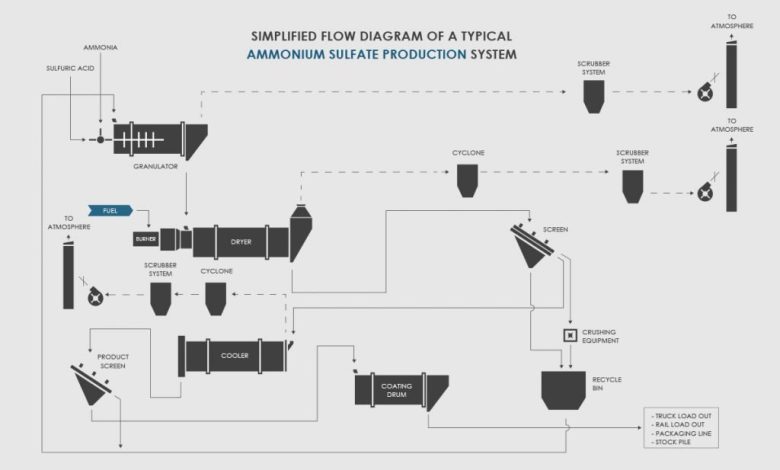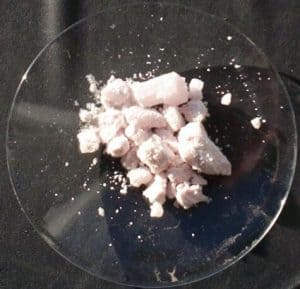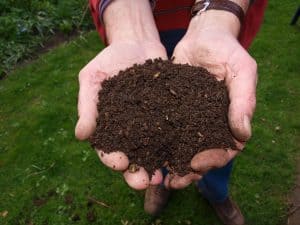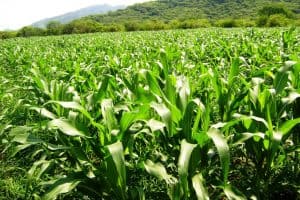Ammonium Sulfate: [Concept, Operation and Application]

What is ammonium sulfate?
 Ammonium sulfate or ammonium sulfate is a salt formed by the reaction between Ammonia and Sulfuric Acid, used in a wide range of crops.
Ammonium sulfate or ammonium sulfate is a salt formed by the reaction between Ammonia and Sulfuric Acid, used in a wide range of crops.
It can be found forming white to beige crystals or granules and its use offers agronomic advantages of great importance for alkaline soils and in soils with sulfur deficiency.
The density of ammonium sulfate is between 0.8 and 1.1. It is soluble in water and insoluble in alcohol. It decomposes by heating to 235ºC and in contact with alkalis, releases Ammonia.
Both Nitrogen and Sulfur contained in ammonium sulfate are elements that participate in the metabolism and physiology of plants, in the synthesis of lipids, carotenoids, organic acids and chlorophyll.
The slightly acidic ammonium sulfate reaction helps increase the availability of micronutrients in the soil. The particle size can vary depending on its purpose.
The use of ammonium sulfate has been declining over time but it is especially valuable where both nutrients, Nitrogen (N) and Sulfur (S), are required.
Much of the current demand for this product is satisfied by obtaining it as a by-product from various industries. Ammonium sulfate (sometimes abbreviated as SA or SAM) has been produced for more than 150 years.
How does ammonium sulfate work as a fertilizer?
 Due to its capacity and effectiveness as a fertilizer, ammonium sulfate is used to provide nitrogen (N) and sulfur (S) in order to meet the nutritional requirements of growing plants.
Due to its capacity and effectiveness as a fertilizer, ammonium sulfate is used to provide nitrogen (N) and sulfur (S) in order to meet the nutritional requirements of growing plants.
Another use that is usually given to ammonium sulfate is in flooded soils for rice production, where nitrate-based fertilizers are a poor alternative due to denitrification.
It is also applied in post-emergent herbicide solutions to improve their effectiveness in weed control. This practice is effective when the water used contains good concentrations of calcium, magnesium, or sodium.
Once applied to the soil and in the presence of moisture, ammonium sulfate dissolves quickly. It is important to know that ammonium sulfate must be applied throughout the crop cycle, in the most fractional way possible, distributing the total dose according to the needs curve of each crop.
For a better use as a fertilizer, it is advisable to prepare a stock solution instead of directly diluting the product in the irrigation water and then apply it according to the instructions of the experts.
What crops can benefit from ammonium sulfate?
Among the crops or crops that can benefit from the use of ammonium sulfate are:
industrial crops
Tobacco, beet, sunflower, cotton, sugar cane.
Small and large-scale garden crops
Tomato, pepper, potato, artichoke, lettuce, carrot, cucumber, onion, melon, strawberry, and asparagus, broccoli and cabbage .
of vineyards
citrus crops
fruit crops
Cereals or grasses
Wheat, oats, sorghum, barley, rice, and corn.
Olive
How and when should we use ammonium sulfate?
 Ammonium sulfate is used in those plants or crops where it is necessary to add nitrogen (N) and sulfur (S) to meet the nutritional requirements that contribute to their growth.
Ammonium sulfate is used in those plants or crops where it is necessary to add nitrogen (N) and sulfur (S) to meet the nutritional requirements that contribute to their growth.
The recommended amounts to use of this fertilizer depend on the crop, phenological phase, soil conditions and water.
Researchers and experts point out that the dose to be used can be 1-1.5 kg/1000 m2 for horticultural crops and irrigation. For a calculation of 10 kg/ha, they would provide 3.15 UFN and approximately 2.52 meq/L NH4+, with a fertilizer conductivity of 0.32 mS/cm.
In soils where the transformation of nitrogen phases is rapid, a contribution of 40% of the total nitrogen could be made in ammoniacal form and the remaining 60% in nitric form, although for this, the form of ammonium nitrate (N 34.5%) becomes more effective and economical.
For any horticultural crop (tomato, pepper, melon, watermelon, cucumber, etc.) a generic solution for applying fertilizers, by irrigation, would be the following: Calcium nitrate: 20 kg/ha: Phosphoric acid: 5 kg/ha (3.1 liters); Potassium nitrate: 20 kg/ha; Magnesium sulfate: 5 kg/ha.,
After application to soil, ammonium sulfate rapidly dissolves into its ammonium and sulfate components. If it remains on the soil surface, ammonium may be susceptible to gaseous loss under alkaline conditions.
Ammonium sulfate must be incorporated into the soil prior to irrigation or precipitation that is known.
What are the advantages of applying ammonium sulfate to crops?
Among the advantages of the crop to which ammonium sulfate is applied are:
great versatility
To apply it both in spring and summer.
An inexpensive source of nutrients
Ammonium sulfate provides 45 fertilizer units (UF) essential for plant growth: 21%N + 24%S (or 60% sulfur expressed in its SO3 oxide form).
Use on all types of floors
Very little risk of loss in terms of nitrogen by volatilization of ammonia.
Respect for the environment
 With ammonium sulfate fertilizer, aquifer environments are protected and losses due to nitrate washing are reduced.
With ammonium sulfate fertilizer, aquifer environments are protected and losses due to nitrate washing are reduced.
In relation to how and when we should add ammonium sulfate to crops, it is up to each farmer and users in general to determine it because it will depend on the general and particular conditions of their crop.
Where to buy ammonium sulfate?
 Ammonium sulfate, nitrogenous fertilizer, in 5 kg bag
Ammonium sulfate, nitrogenous fertilizer, in 5 kg bag
- Nitrogenous fertilizer, with ammonia nitrogen, which develops its action progressively and lastingly since it is not eliminated…
- It exerts an acidifying action on the soil, and therefore it is recommended to fertilize calcareous soils.
- The presence of sulfur is important, which allows you to enjoy quality vegetables with a high amount of…
View on Amazon Prices with VAT without transport
Last updated on 2022-07-30 / Affiliate Links / Affiliate API Images
No products found.
- Ammonium sulfate is a nitrogenous fertilizer that is widely used in scale. its nitrogen content is totally…
€13.00 View on Amazon Prices with VAT without transport
Last updated on 2022-07-30 / Affiliate Links / Affiliate API Images
Bibliography and references
- Information sheets. Specific Nutrient Sources. IPN. PDF. https://www.ube.es/ES/descargas/descarga.php?ar=Manual_de_Sulfato_Amonico-3.pdf.
digital database
- Scielos.org.pe. Stevia Study. Reproduced from: http://www.scielo.org.pe/scielo.php?script=sci_arttext&pid=S2077-99172014000300006
- Fertiberia.com. Ammonium Sulfate 21. Fertibersol. Reproduced from: https://www.fertiberia.com/es/agricultura/productos/categorias/aqua/solidos-solubles/sulfato-am%C3%B3nico-21-60/
- Isusa.com.urg. ammonium sulfate industry. Reproduced from: http://isusa.com.uy/producto/sulfato-de-ammonio-industrial
- Tacsamex.com. Ammonium Sulfate. Reproduced from: http://tacsa.mx/DEAQ/src/productos/2026_43.htm
- Beforeallthiswasfield.com. How to apply ammonium sulfate. Reproduced from: https://www.antestodoestoeracampo.net/sulfato-de-ammonio/#How to Apply Ammonium Sulfate


![Photo of Planting Carnations: [Needs, Substrate, Irrigation and Cultivation]](https://www.complete-gardening.com/wp-content/uploads/2022/08/planting-carnations-needs-substrate-irrigation-and-cultivation-390x220.jpg)

![Photo of Plant Sunflowers: [Cultivation, Care, Irrigation, Substrate, Pests]](https://www.complete-gardening.com/wp-content/uploads/2022/08/plant-sunflowers-cultivation-care-irrigation-substrate-pests-390x220.jpg)
